N
Nancy Clark
Guest
Sports Nutrition Winning the War Against Junk Food Snack Attacks
SoccerToday’s nutrition columnist Nancy Clark on practical tips for soccer players who want to win with good nutrition.
Soccer Player Nutrition: Fuel Properly
“I wish I didn’t have snack attacks. I eat way too much chocolate…”
“I eat only healthy foods during the day. My snacking problem starts the minute I get home from work. Chips are my downfall…”
“I try hard to not snack after dinner, but I have a bad habit of getting into the ice cream…”
Day after day, I hear soccer players complain about their (seemingly) uncontrollable snacking habits.
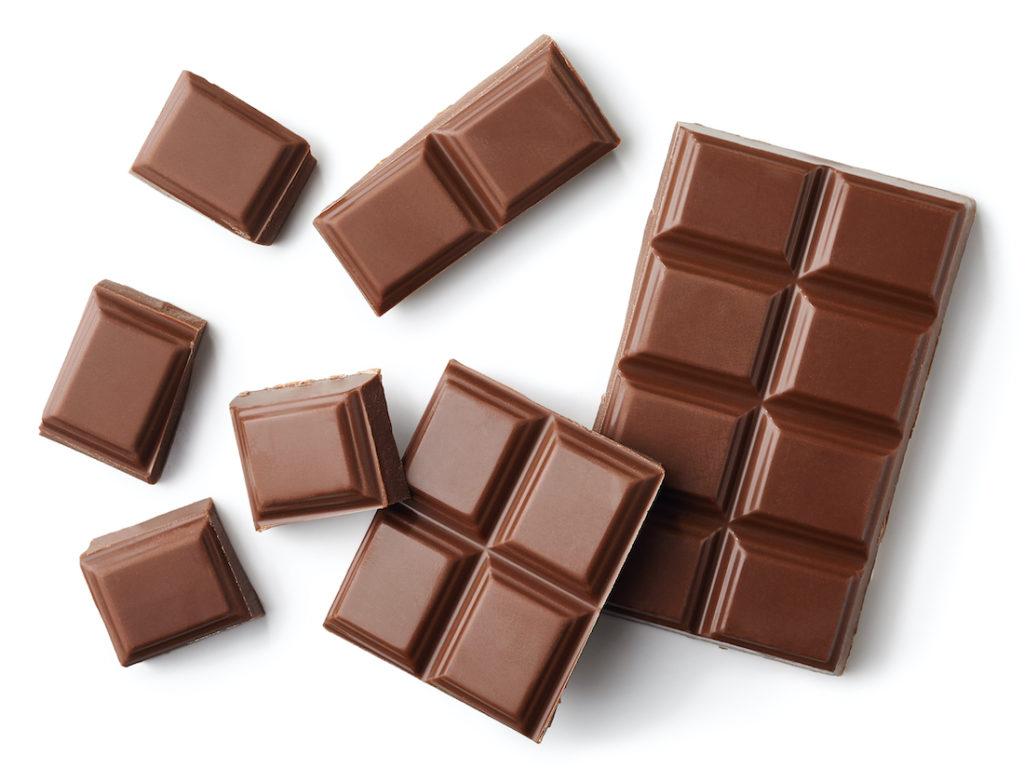
Others believe eating between meals is sinful and fattening; snacking is just plain wrong. Some equate snacking to doing drugs. They bemoan they are addicted to sugar and can’t eat just one cookie. Snacking is all or nothing.
SOCCER NUTRITION: The Value of A Snack Attack
Despite the popular belief that snacking is bad, the truth is that snacking can be helpful for soccer players. Just avoid junk food snacking.
Athletes get hungry and need to eat at least every three to four hours. That means, if you have breakfast at 7:00, you’ll be ready for food by 10:00 or 11:00, particularly if you train in the morning. By 3:00 p.m., you will again want more food.
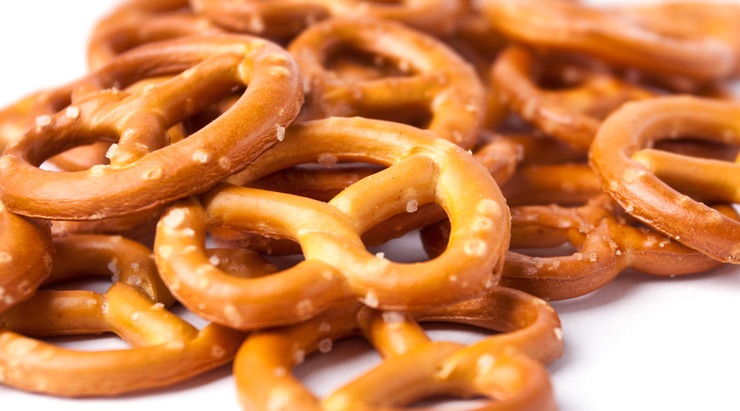
For students-athletes who practice or compete mid- to late-afternoon, a pre-exercise snack is very important to provide the fuel needed to have an effective workout.
The trick is to make snacks a part of your sports diet — preferably with an early lunch at 11:00 that replaces the morning snack.
SOCCER NUTRITION: Try A Second Lunch
Why wait to eat at noon when you are hungry now?
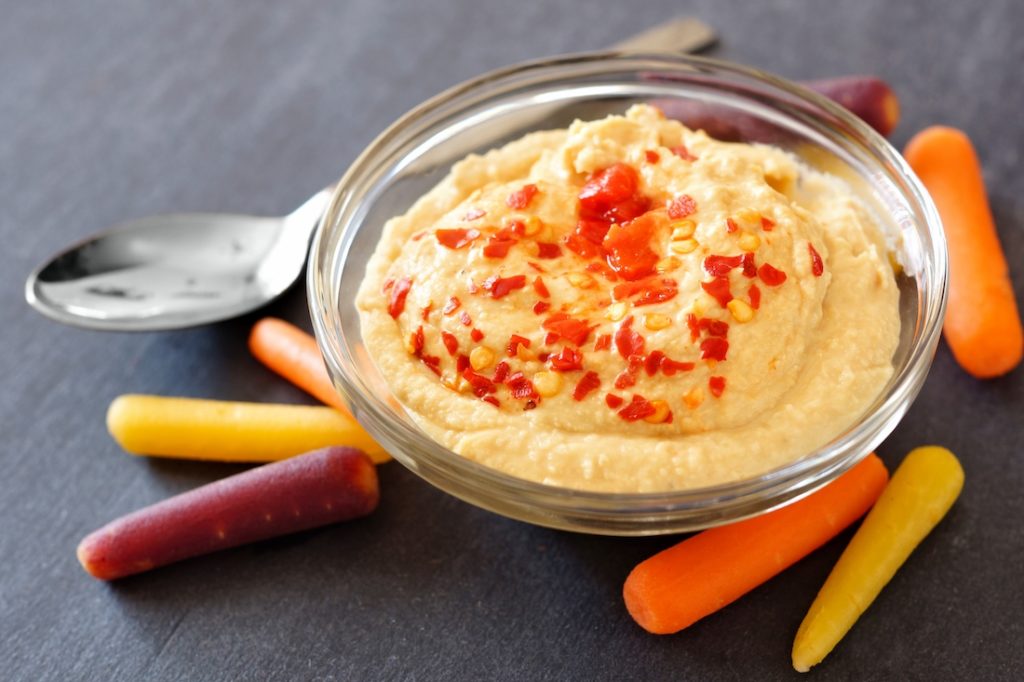
Try this: A second lunch instead of afternoon sweets can energize the end of your work or school day. A planned wholesome meal is far better than succumbing to sugary snacks or stimulant drinks.
Snacking problems commonly occur when soccer players under-eat meals, only to over-indulge in snacks. Inadequate breakfasts and lunches can easily explain why snacks can contribute 20 to 50 percent of total calories for the day. Fingers crossed those snacks are nutrient-rich!
Hungry soccer players (and all people, for that matter) tend to crave sweets (and fats) and can easily eat too many donuts, chocolate chip cookies, candy bars — foods with sugar for quick energy and fat for concentrated calories.
Unless you are super serious and committed to a healthy diet for an athlete, the honking big muffin can easily win out over a piece of fruit, hands down!
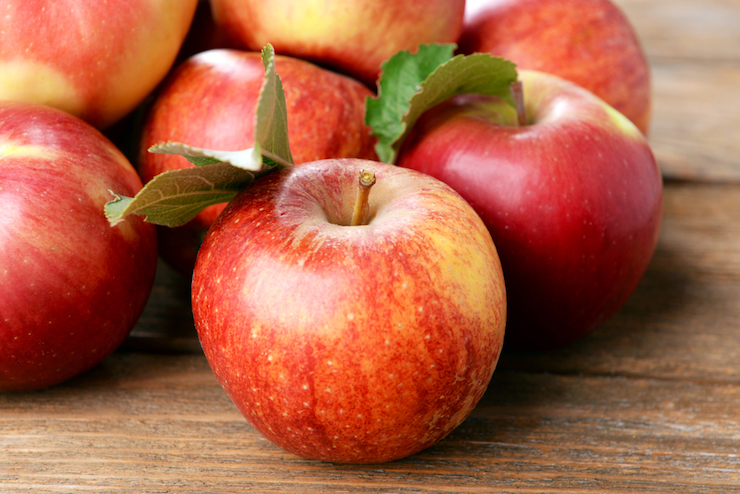
Soccer Player Nutrition Advice: Eat fresh fruit daily.
SOCCER NUTRITION: Prevent Bedtime Snacking
Soccer players who report they “eat well during the day but get into trouble with snacks at night” need to understand the problem is not the evening snacks but having eaten too little during the active part of their day.
One way to eliminate a mid-morning snack attack is to have a protein-rich, satiating breakfast (such as 3 eggs + avocado toast + a latte for 500-600 calories) as opposed to just a packet of oatmeal (only 100-150 calories). Enjoy soup + sandwich for lunch (500-700 calories), not just a salad with grilled chicken (only 300 calories).
Do you spend too much time thinking about food all day? If so, your brain is telling you it wants some fuel. Thinking about food nudges you to eat. If you were to never think about food, you’d waste away to nothing.
SOCCER NUTRITION: Identifying Hunger
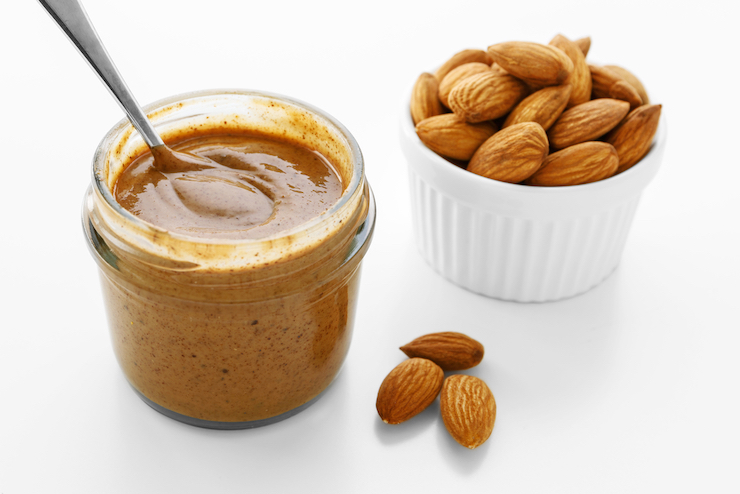
Other hunger signals include feeling droopy, moody, cold, bored (I’m eating this popcorn just because I’m bored), unable to focus, and easily irritated. If you fail to honor these hunger signals, they will escalate into a growling stomach (too hungry) and an all-out snack attack. Prevent hunger; eat enough during the active part of your day.
Please remember that hunger does not mean “Oh no, I’m going to eat and get fat.” Hunger is simply a request for fuel. Just as a light on the dashboard of your car signals when your car needs gas, your brain sends you hunger signals when your body is low on fuel. To not eat when you are hungry is abusive to your body (and mind) and puts your body into muscle-breakdown mode, which is counter-productive for athletes.
SOCCER NUTRITION: Losing Weight Without Hunger
Even if you want to lose undesired body fat, you should eat enough to feel satiated during the active part of your day.
You can lose weight (“diet”) at night when you are sleeping.
This is the opposite of how most soccer players eat: They diet by day, then attack the snacks at night. They eat the whole pint of ice cream, too many chocolates, and/or non-stop chips before going to bed.
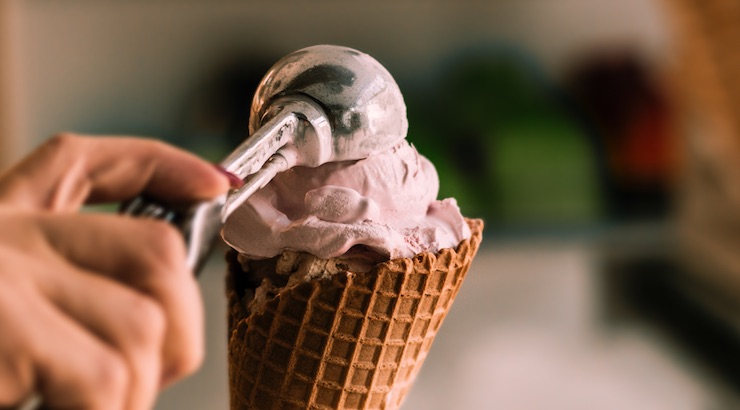
The better bet is to fuel by day and diet at night by eliminating high-calorie evening snacks.
Dieting athletes typically report the most concerns about snack attacks. As one soccer player complained, “I’m hungry all the time.”
If that sounds like you, and you feel hungry within the hour after you eat a meal, experiment with eating heartier meals. For help figuring out a food plan that works for you, I encourage you to meet with a registered dietitian (RD) who specializes in sports nutrition.
The referral network at www.SCANdpg.org can help you find a local sports nutrition professional.
SOCCER NUTRITION: Winning the War Against Snack Attacks
I encourage my clients to convert snacktime into mealtime.
Instead of reaching for cookies, candy, caffeine, and other typical snack foods, try a healthy option that can fuel your body and help you reach a better level of performance.
They opt for a peanut butter & banana sandwich for an early lunch at 10:00 or 11:00ish.
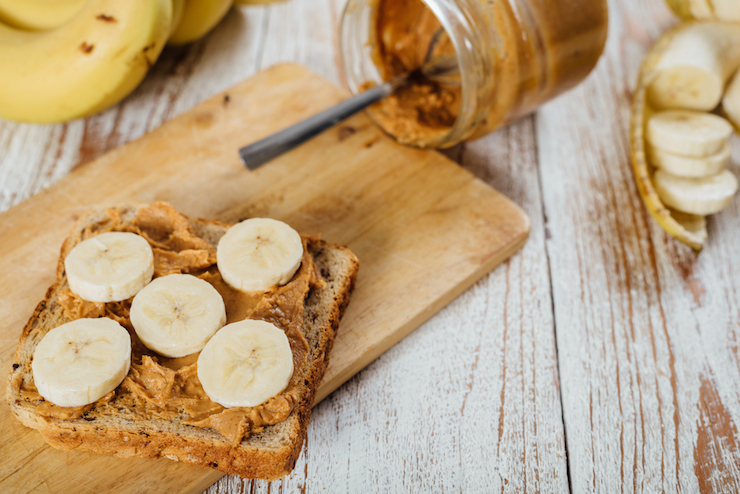
As long as they have a flexible eating schedule, no need to eat a donut just to bridge the gap to the more traditional eating time of noon. They then can enjoy a later second lunch at 2:00 to 3:00ish, which gives them energy to be productive throughout the last hours of the workday.
By enjoying two lunches instead of snack foods + one lunch, they generally end up eating more quality calories and fewer sweets. If their meal schedule is inflexible, I nudge them to at least snack on mini-meals instead of sweets:
The benefits of being well-fed are fewer snack attacks, more energy, and easier weight management. Give it a try?
Related Articles: Soccer Players: Next Level Nutrition; Nutrition Tips for Soccer Players: The Athlete’s Kitchen
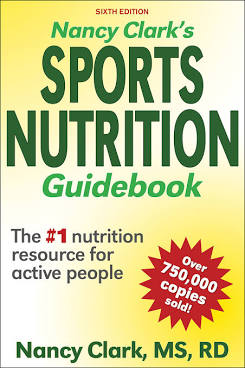

Sports Nutritionist Nancy Clark
SIDEBAR: Nutritional and medical advice changes with new discoveries and interpretations. Always check with your medical provider and/or nutritionist for what is best for you and your family.
Sports nutritionist Nancy Clark MS RD CSSD has a private practice in the Boston-area, where she helps both fitness exercisers and competitive athletes create winning food plans. Her best-selling (6th Edition) Sports Nutrition Guidebook, and Food Guide for Soccer, as well as teaching materials, are available at www.nancyclarkrd.com. Click here for online and live workshops.
The post NUTRITION FOR SOCCER PLAYERS: HOW TO AVOID SNACK ATTACKS appeared first on SoccerToday.
Continue reading...
SoccerToday News from Diane Scavuzzo
SoccerToday’s nutrition columnist Nancy Clark on practical tips for soccer players who want to win with good nutrition.
Soccer Player Nutrition: Fuel Properly
“I wish I didn’t have snack attacks. I eat way too much chocolate…”
“I eat only healthy foods during the day. My snacking problem starts the minute I get home from work. Chips are my downfall…”
“I try hard to not snack after dinner, but I have a bad habit of getting into the ice cream…”
Day after day, I hear soccer players complain about their (seemingly) uncontrollable snacking habits.

Some believe they are hopelessly, and helplessly, addicted to chocolate.
Others believe eating between meals is sinful and fattening; snacking is just plain wrong. Some equate snacking to doing drugs. They bemoan they are addicted to sugar and can’t eat just one cookie. Snacking is all or nothing.
SOCCER NUTRITION: The Value of A Snack Attack
Despite the popular belief that snacking is bad, the truth is that snacking can be helpful for soccer players. Just avoid junk food snacking.
Athletes get hungry and need to eat at least every three to four hours. That means, if you have breakfast at 7:00, you’ll be ready for food by 10:00 or 11:00, particularly if you train in the morning. By 3:00 p.m., you will again want more food.

For students-athletes who practice or compete mid- to late-afternoon, a pre-exercise snack is very important to provide the fuel needed to have an effective workout.
The trick is to make snacks a part of your sports diet — preferably with an early lunch at 11:00 that replaces the morning snack.
SOCCER NUTRITION: Try A Second Lunch
Why wait to eat at noon when you are hungry now?

Try this: A second lunch instead of afternoon sweets can energize the end of your work or school day. A planned wholesome meal is far better than succumbing to sugary snacks or stimulant drinks.
Snacking problems commonly occur when soccer players under-eat meals, only to over-indulge in snacks. Inadequate breakfasts and lunches can easily explain why snacks can contribute 20 to 50 percent of total calories for the day. Fingers crossed those snacks are nutrient-rich!
To painlessly resolve nutrient-poor snack attacks, eat before you get too hungry.
Hungry soccer players (and all people, for that matter) tend to crave sweets (and fats) and can easily eat too many donuts, chocolate chip cookies, candy bars — foods with sugar for quick energy and fat for concentrated calories.
Unless you are super serious and committed to a healthy diet for an athlete, the honking big muffin can easily win out over a piece of fruit, hands down!

Soccer Player Nutrition Advice: Eat fresh fruit daily.
SOCCER NUTRITION: Prevent Bedtime Snacking
Soccer players who report they “eat well during the day but get into trouble with snacks at night” need to understand the problem is not the evening snacks but having eaten too little during the active part of their day.
Snacking is the symptom; getting too hungry is commonly the problem.
One way to eliminate a mid-morning snack attack is to have a protein-rich, satiating breakfast (such as 3 eggs + avocado toast + a latte for 500-600 calories) as opposed to just a packet of oatmeal (only 100-150 calories). Enjoy soup + sandwich for lunch (500-700 calories), not just a salad with grilled chicken (only 300 calories).
Do you spend too much time thinking about food all day? If so, your brain is telling you it wants some fuel. Thinking about food nudges you to eat. If you were to never think about food, you’d waste away to nothing.
SOCCER NUTRITION: Identifying Hunger

Other hunger signals include feeling droopy, moody, cold, bored (I’m eating this popcorn just because I’m bored), unable to focus, and easily irritated. If you fail to honor these hunger signals, they will escalate into a growling stomach (too hungry) and an all-out snack attack. Prevent hunger; eat enough during the active part of your day.
Please remember that hunger does not mean “Oh no, I’m going to eat and get fat.” Hunger is simply a request for fuel. Just as a light on the dashboard of your car signals when your car needs gas, your brain sends you hunger signals when your body is low on fuel. To not eat when you are hungry is abusive to your body (and mind) and puts your body into muscle-breakdown mode, which is counter-productive for athletes.
SOCCER NUTRITION: Losing Weight Without Hunger
Even if you want to lose undesired body fat, you should eat enough to feel satiated during the active part of your day.
You can lose weight (“diet”) at night when you are sleeping.
This is the opposite of how most soccer players eat: They diet by day, then attack the snacks at night. They eat the whole pint of ice cream, too many chocolates, and/or non-stop chips before going to bed.

Winning the war against hunger requires white knuckles. Not sustainable and not fun.
The better bet is to fuel by day and diet at night by eliminating high-calorie evening snacks.
Dieting athletes typically report the most concerns about snack attacks. As one soccer player complained, “I’m hungry all the time.”
If that sounds like you, and you feel hungry within the hour after you eat a meal, experiment with eating heartier meals. For help figuring out a food plan that works for you, I encourage you to meet with a registered dietitian (RD) who specializes in sports nutrition.
The referral network at www.SCANdpg.org can help you find a local sports nutrition professional.
SOCCER NUTRITION: Winning the War Against Snack Attacks
I encourage my clients to convert snacktime into mealtime.
Instead of reaching for cookies, candy, caffeine, and other typical snack foods, try a healthy option that can fuel your body and help you reach a better level of performance.
They opt for a peanut butter & banana sandwich for an early lunch at 10:00 or 11:00ish.

As long as they have a flexible eating schedule, no need to eat a donut just to bridge the gap to the more traditional eating time of noon. They then can enjoy a later second lunch at 2:00 to 3:00ish, which gives them energy to be productive throughout the last hours of the workday.
By enjoying two lunches instead of snack foods + one lunch, they generally end up eating more quality calories and fewer sweets. If their meal schedule is inflexible, I nudge them to at least snack on mini-meals instead of sweets:
- Whole-grain English muffin + nut butter
- Oatmeal cooked in milk + dates
- Hummus + baby carrots
The benefits of being well-fed are fewer snack attacks, more energy, and easier weight management. Give it a try?
Related Articles: Soccer Players: Next Level Nutrition; Nutrition Tips for Soccer Players: The Athlete’s Kitchen


Sports Nutritionist Nancy Clark
SIDEBAR: Nutritional and medical advice changes with new discoveries and interpretations. Always check with your medical provider and/or nutritionist for what is best for you and your family.
Sports nutritionist Nancy Clark MS RD CSSD has a private practice in the Boston-area, where she helps both fitness exercisers and competitive athletes create winning food plans. Her best-selling (6th Edition) Sports Nutrition Guidebook, and Food Guide for Soccer, as well as teaching materials, are available at www.nancyclarkrd.com. Click here for online and live workshops.
The post NUTRITION FOR SOCCER PLAYERS: HOW TO AVOID SNACK ATTACKS appeared first on SoccerToday.
Continue reading...
SoccerToday News from Diane Scavuzzo
